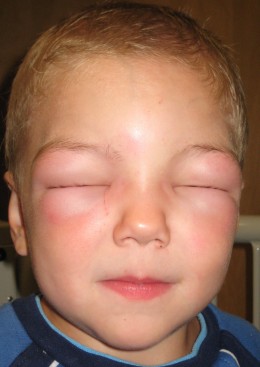This article contains affiliate links. If you make a purchase after clicking on a link I may earn a small commission at no extra cost to you.
To manage Allergies and understand what allergy is for the sake of your own health as well as the health of your family, learn how allergy occurs, become aware of common signs and symptoms, and discover what you can do to manage allergic disease.

Allergies are the fastest growing chronic diseases in the USA and other industrial countries.
Almost 20 per cent of the USA population – has at least one allergic disease and the number of people affected is on the rise.
What is an Allergy?
Allergy occurs when a person’s immune system reacts to substances in the environment that are harmless for most people. These substances are known as allergens and are found in house dust mites, pets, pollen, insects, moulds, foods and some medicines.
If you are sensitive to an allergen and you come into contact with it, an allergic reaction usually occurs. Coping with Allergies is all manage about becoming aware of the cause of your symptoms and then developing management.
What Happens During An Allergic Reaction?
An allergic reaction begins with the allergen entering your body.
Your immune system believes that the allergen is dangerous, so it produces a specific antibody (19E) to destroy the invading material.
The antibodies attach themselves to specific cells called mast cells. When the allergen comes into contact with the antibodies, the mast cells release certain substances, one of which is called histamine. When the release of histamine is due to an allergen, the result is inflammation (redness and swelling).
Symptons

Allergic reactions can affect your nose, eyes, sinuses, throat, lungs and digestive system and can involve several parts of the body at the same time. Symptoms depend on the allergen and where it enters your body.
The nose, eyes, sinuses and throat
When allergens are breathed in, the release of histamine causes the lining of your nose to produce lots of mucus and to become swollen and inflamed. It causes your nose to run and itch and sneezing may occur. Your eyes may also start to water and become red, puffy and itchy. You may also get a sore throat.
The lungs and chest
Asthma can sometimes be triggered during an allergic reaction. When something is breathed in, the lining of the passages in the lungs swells and makes breathing difficult. Not all asthma is caused by allergy, but in many cases allergy plays a part.
The stomach and bowel
Food allergies commonly affect the digestive system causing stomach pain, nausea, diarrhea and vomiting. Cow’s milk allergy in babies may cause eczema, asthma, colic and stomach upset. It may also lead to failure to thrive.
Most stomach upsets are caused by richness or spiciness in the food itself rather than actual allergy. Some people cannot digest lactose (a sugar found in milk). This intolerance to lactose also causes stomach upsets but it is not allergy. Therefore, it is important to have food allergy properly diagnosed by an allergy specialist.
The skin
Skin problems such as eczema (dry, red, itchy skin) and urticaria (also known as hives) often occur. Hives are very itchy, raised patches of skin. Common causes are contact with animals or plants and some medications. Food may be a factor in some cases of skin problems.
ALLERGIC REACTIONS
Most allergic reactions are mild to moderate and do not cause major problems, even though for many people they may be a source of extreme irritation and discomfort and tiredness, affecting performance at school or work.
However, a small number of people may experience a severe aIlergic reaction called anaphylaxis. Anaphylaxis a serious condition, which requires immediate life-saving medication. Some of the more common allergens that may cause a anaphylaxis are peanuts, shellfish, insect stings and medications see Anaphylaxis).
As there is rarely a cure for allergies it is wisest to manage Allergies and educate yourself about allergy and intolerance. Many people go through life lacking in energy and vitality simply due to something they consume or are in contact with is affecting their well being.
Only through eduction can you become aware of common signs and symptoms, and discover what you can do to manage allergic disease.
